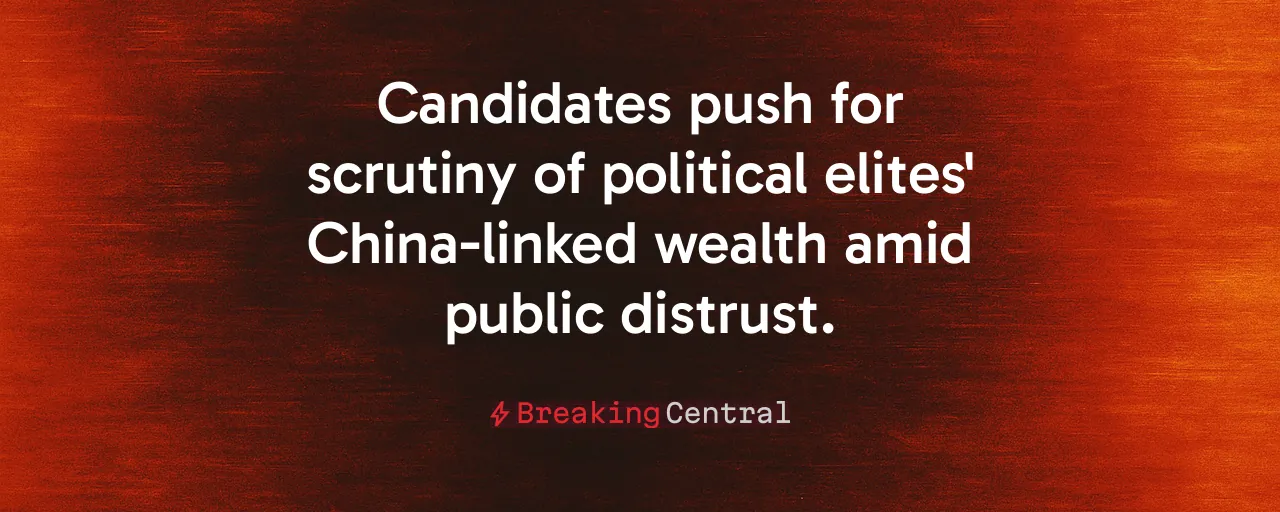A Candidate's Bold Demand
Kentucky Senate hopeful Nate Morris ignited a firestorm in July 2025, demanding investigations into former House Speaker Nancy Pelosi and retiring Senate Leader Mitch McConnell. He alleged that both amassed fortunes through questionable stock trades and family business ties to China, all while ordinary Americans struggled. Broadcast by commentator Benny Johnson, Morris's remarks tapped into a deep well of public frustration over political elites prospering amid national challenges.
Morris, vying for Kentucky's 2026 Republican primary, framed his call as a stand for fairness. He pointed to Pelosi's household stock trades, which often outperformed the market, and McConnell's family shipping business, linked to Chinese state financing. These accusations, while not new, resonate with voters skeptical of Washington's integrity. The timing, with McConnell's retirement looming, amplifies the stakes for Kentucky and beyond.
This debate reflects broader unease with congressional wealth, extending beyond the actions of just two leaders. Polls show declining trust in government, with many Americans believing lawmakers prioritize personal gain over public service. Morris's campaign leverages this sentiment, positioning him as an outsider challenging a rigged system. However, the complexity of these allegations demands a closer look at evidence and solutions.
Scrutinizing Stock Trades
Pelosi's family investments, managed by her husband Paul, have long drawn attention. Data from Quiver Quantitative reveals their trades, like a timely Visa stock sale before a Justice Department antitrust suit, yielded millions in gains. Similar patterns appear in Nvidia and Tesla trades, raising questions about access to privileged information. While no charges have been filed, the consistent market-beating returns fuel suspicion.
McConnell's wealth, tied to his wife Elaine Chao's family, centers on Foremost Group, a shipping company with Chinese bank financing. Investigative reports, including Peter Schweizer's 2022 book, detail how these ties grew alongside China's global trade dominance. Critics argue such connections pose national security risks, especially as Beijing's influence expands. For voters, these links contrast sharply with stagnant wages at home.
Historical precedent adds weight to these concerns. The 2012 STOCK Act, passed after a 60 Minutes exposé, mandated public disclosures of congressional trades. However, enforcement remains uneven. The 2020 COVID-era trading scandal, where Senator Richard Burr faced FBI scrutiny, showed probes often target lower-ranking members, leaving top leaders untouched. This disparity drives calls for reform.
Restoring Public Trust
The core issue is trust. When lawmakers' portfolios thrive while constituents struggle, faith in democracy erodes. Studies confirm congressional investments often outperform market indices, though direct proof of illegal insider trading remains elusive. Still, the perception of a two-tier system, where elites evade accountability, galvanizes public outrage. Morris's demands echo this sentiment, urging action to level the playing field.
Proposed solutions focus on structural change. The PELOSI Act, which would ban lawmakers and spouses from trading individual stocks, has gained traction. Blind trusts, where assets are managed independently, offer another path. Both measures aim to eliminate conflicts of interest, ensuring elected officials prioritize constituents over personal wealth. Bipartisan support for such reforms signals a rare chance for progress.
China-related concerns add urgency. Divesting from businesses tied to Chinese state entities could reduce foreign leverage, though it risks higher consumer costs. Lawmakers face a balancing act: addressing legitimate security worries without fueling divisive rhetoric. Targeted policies, like mandating divestiture from state-owned firms, could bridge this gap while safeguarding national interests.
A Path to Accountability
While Morris's campaign has spotlighted a critical issue, investigations alone will not suffice. Proving insider trading requires evidence of nonpublic information, a high legal bar. Instead, systemic reforms offer a clearer route. Strengthening the Office of Congressional Ethics, tightening disclosure rules, and requiring blind trusts for all lawmakers could restore confidence without partisan overreach.
Bipartisan momentum exists. Bills like the End Congressional Stock Trading Act, co-sponsored across party lines, propose banning individual trades while allowing diversified funds. Expanding penalties for late disclosures and creating an independent ethics overseer also draw support. These steps, grounded in fairness, align with public demands for transparency and accountability.
As Kentucky voters weigh their post-McConnell future, Morris's challenge resonates beyond the campaign trail. It calls for prioritizing integrity over enrichment and rebuilding a system where public service is paramount. The road ahead requires courage and compromise, but the prize, a government trusted by its people, is worth the fight.
